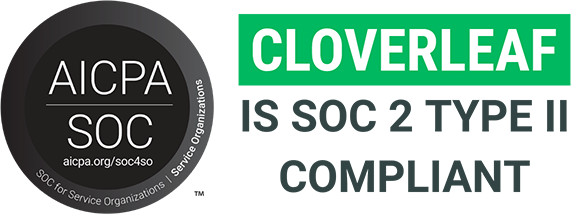Navigating the complexities of nurturing long-term, committed professional talent requires more than just a managerial title; it demands a leadership style that resonates with the evolving needs of today’s workforce. Managers and leaders are finding themselves at a crossroads where fostering responsibility, personal growth, and innovation is not just encouraged but expected.
The workplace is evolving, and with it, the workforce’s expectations. Today’s employees seek more than just a paycheck; they yearn for purpose, growth, and a sense of belonging.
Coaching leadership meets these needs head-on, offering a framework for managers to mentor rather than micromanage and inspire rather than impose. It’s a style that aligns with the human-centric focus of contemporary business ethos, where the growth of individuals is inextricably linked to the organization’s success.
The essence of a coaching leadership style lies in its capacity to cultivate a culture of collaboration and proactive engagement. While not every manager may naturally exhibit this approach, the good news is that it’s a skill that can be honed. This style of leadership is not about wielding authority but about empowering teams to discover their path to success.
In this post, you’ll explore the multifaceted nature of coaching leadership style, the application of emotional intelligence, and their transformative effects on leadership development and effectiveness. We’ll also examine how these strategies enhance individual skills and reinforce a team’s growth mindset.

What Is A Coaching Leadership Style?
The coaching leadership style is a relational and developmental approach, where the leader acts as a facilitator rather than a director, guiding individuals towards self-awareness and reaching their potential. It is characterized by a leader’s understanding and appreciation of each team member’s unique strengths and areas for growth.
This style is underpinned by the belief that every teammate has the potential to excel, and the leader’s role is to foster an environment that nurtures this potential into performance. Through personalized engagement, constructive feedback, and a commitment to the professional development of each individual, leaders who coach aim to unlock the latent talents within their teams, paving the way for collective success and individual fulfillment.
The origins of coaching leadership skills in the business sphere can be traced back to the late 20th century, with thought leaders like Sir John Whitmore pioneering the principles of performance coaching: Coaching is unlocking people’s potential to maximize their own performance. It is helping them to learn rather than teaching them. It’s a style that emphasizes developing people’s skills, creativity, and resourcefulness rather than simply directing and controlling.
The Shift from Traditional Leadership Styles to Coaching Leadership
The transition from traditional leadership methods to a coaching approach reflects a broader cultural shift in our understanding of work. Once the command-and-control model reigned supreme, predicated on strict oversight and rigid structures, the modern workplace calls for a more nuanced touch.
The essence of generative feedback and the avoidance of the ‘poop sandwich’ (criticism in between two positive comments) approach to criticism are emblematic of this shift. Leaders now recognize that the carrot-and-stick methods of the past are less effective with today’s workforce, which values autonomy, purpose, and self-expression.
A coaching style of leadership represents a move towards a more personalized, strengths-based approach, where the leader’s role is to help employees achieve their full potential by asking thought-provoking questions and facilitating problem-solving rather than providing all the answers.
The Role of Coaching Leadership in Today’s Business Environment
In today’s fast-paced, innovation-driven business environment, coaching is not just beneficial; it’s essential. The ability to provide feedback that is both candid and growth-minded is a hallmark of a leader who is a good coach. This style suits the contemporary work climate, where agility, continuous learning, and adaptability are critical.
Coaching akin to servant leadership helps create a culture where team members feel valued and understood, and their contributions are considered integral to the team’s success. They foster an environment where employees are encouraged to take ownership of their roles, set development goals, and pursue professional growth within the supportive framework of the team. In essence, coaching is about cultivating a company culture that is not only productive but also deeply human, resonating with the intrinsic motivations and aspirations of every person.

HUMAN SKILL PROGRAMS ARE HITTING LIMITATIONS...
- Close the widening gap between learning and on-the-job application
- Overcome the tension of pausing productivity for development opportunities
- Integrate learning so it is actually in the flow of work
- The evolution of human skill development
- What Automated Coaching™ is and how it works.
Adobe’s Performance Review Revolution:
Adobe Systems Incorporated made headlines when they replaced their annual performance reviews with a “Check-In” system, emphasizing ongoing feedback and expectations setting. Under the leadership of Donna Morris, the Executive Vice President of Customer and Employee Experience, Adobe has seen a 30% reduction in voluntary turnover. The Check-In system is a prime example of coaching leadership in action, focusing on real-time development opportunities and fostering open communication between managers and employees.
Google’s Project Oxygen:
Google’s internal study, Project Oxygen, sought to understand what makes a manager great at Google. The findings emphasized coaching as one of the top traits of their best managers. This led to the development of training programs focused on coaching skills for managers across the company. As a result, Google saw improvements in teamwork, employee satisfaction, and retention rates.
The Impact on Employee Satisfaction and Retention
A Gallup study revealed that managers who adopt a coaching style have teams with higher employee engagement and satisfaction levels. In an era where the cost of replacing an employee can be substantial, retaining talent through effective leadership benefits team morale and the company’s bottom line.
The benefits of coaching are multi-faceted, affecting not just the performance metrics but also the human elements of business. By investing in a coaching leadership style, organizations can create a sustainable environment that nurtures talent, drives performance, and maintains a competitive edge in the ever-evolving business landscape.
Not to mention, the influence of coaching extends beyond immediate team performance, deeply affecting employee satisfaction and retention. A coaching leader’s commitment to personal development can significantly enhance an employee’s connection to their workplace.
At PepsiCo, former CEO Indra Nooyi’s practice of writing personal letters to the parents of her executive team members to share their impact exemplifies how to be an impactful leader. This personal touch contributed to a culture where employees felt genuinely appreciated, leading to increased loyalty and decreased turnover intentions.
Similarly, Best Buy’s resurgence under CEO Hubert Joly was fueled by a leadership style prioritizing human connections and individual growth. By transforming managers into coaches, Best Buy not only improved customer service but also saw a rise in employee morale and a drop in turnover, proving that when employees are coached to success, they are more likely to stay and contribute to the company’s success.

7 Key Skills of Effective Coaching Leaders
Emotional intelligence is the bedrock of impactful coaching, comprising several key traits that allow leaders to navigate the complexities of human interactions and foster a positive work culture. Let’s explore these traits through the lens of experts in each field:
1. Self-awareness: Brené Brown exemplifies self-awareness through her introspective research on vulnerability and courage. She teaches leaders to embrace their strengths and vulnerabilities, understanding that this self-knowledge is crucial for authentic leadership that resonates with others.
2. Self-regulation: Marc Brackett’s work on emotional regulation gives leaders the tools to effectively manage their impulses and moods. His emphasis on pausing to think before reacting helps leaders maintain a calm and productive work environment.
3. Social awareness: Simon Sinek’s insights into what motivates people reflect a deep understanding of social awareness. He guides leaders in recognizing and responding to the emotional needs of their teams, which is essential for building trust and fostering collaboration.
4. Relationship management: Liz Wiseman’s concept of “Multipliers” is a testament to her expertise in relationship management. She demonstrates how leaders can amplify the capabilities of their direct reports through clear communication, inspiration, and effective conflict resolution.
5. Motivation: A coaching leader’s approach to motivation is characterized by an understanding of what drives their team members. This understanding fosters a workplace where intrinsic motivation is nurtured, and individuals are encouraged to pursue their goals within the context of the team’s vision.
6. Empathy: Empathy goes beyond mere understanding to genuinely sharing in the feelings of others. It’s a trait that enables leaders to connect with their team members on a human level, ensuring that interactions are compassionate and supportive, and that the workplace is a place of equality and empowerment.
7. Social Skills: Effective coaching leaders leverage social skills to relate to and engage with teammates. They prioritize collective growth and guide rather than control, creating an environment where constructive feedback and action are encouraged.
By integrating these EI components into their leadership style, coaching leaders can cultivate a work environment that supports the growth of individuals and enhances the collective well-being and productivity of the team.
Why Coaching Leadership Outshines 5 Traditional Types Of Leadership Styles
Leadership is a multifaceted endeavor, with various styles offering different benefits and drawbacks. However, when compared to traditional leadership approaches, coaching leadership often stands out as a more adaptive and empowering method. Here’s why a coaching leadership style is generally more advantageous than each of the following common leadership styles:
Autocratic vs. Coaching: Autocratic leadership centralizes power and decision-making in the hands of the leader, often leading to quick decisions but at the cost of creativity and team morale. In contrast, coaching leadership encourages autonomy and personal growth, which can lead to more innovative solutions and a more engaged team. While autocratic leaders may bring short-term efficiency, coaching leadership builds a resilient and adaptable team for long-term success.
Democratic vs. Coaching: Democratic leadership values the input of team members, which aligns with the inclusive nature of coaching leadership. However, coaching leadership goes a step further by seeking input and actively developing team members’ skills to contribute more effectively. This approach ensures that team engagement translates into professional growth and higher performance rather than consensus.
Holistic vs. Coaching: Holistic leadership’s focus on the team’s well-being is commendable, but it can sometimes lack the drive for performance and individual accountability that coaching leadership provides. Coaching leaders balance empathy with a clear focus on results, ensuring that the team’s well-being translates into tangible outcomes and personal development.
Visionary vs. Coaching: Visionary leaders inspire and motivate with a compelling vision of the future, but they may not always provide the support needed for individuals to reach that future. Coaching leadership, by contrast, combines vision with hands-on development, ensuring that each employee has the skills and confidence to contribute to the collective goal.
Authoritarian vs. Coaching: Authoritarian leadership imposes strict rules and high expectations, which can lead to efficiency but also stress and high turnover. Coaching leadership, while demanding high standards, achieves them through support and development rather than fear and control.
Identifying the Right Approach:
While each traditional style has its place, coaching leadership is often the more balanced and desirable, especially in today’s business environment. It combines the best elements of other styles—such as the efficiency of autocratic leadership, the inclusivity of democratic leadership, the empathy of holistic leadership, the inspiration of visionary leadership, and the high standards of authoritarian leadership—into a flexible, growth-oriented approach.
Influential leaders foster environments where team members are not just executing tasks but actively developing their capabilities. It’s a style that not only meets the organization’s immediate needs but also prepares the team for future challenges, making it a superior choice for leaders who want to build a robust, forward-thinking, and high-performing team.

6 Trends Shaping The Future Of Coaching Leadership
The trajectory of coaching leadership is increasingly intertwined with technological innovation and a culture of collaborative feedback. These emerging trends reshape how leaders engage with their teams and how organizations foster growth and learning.
1. Technology-Driven Personalization: Automated Coaching™ harnesses the power of technology to deliver a highly personalized coaching experience. It moves beyond the one-size-fits-all model, using data analytics and ethical AI to tailor coaching to each individual’s unique needs and learning styles. This level of customization ensures that every coaching interaction is relevant, impactful, and aligned with the employee’s personal growth trajectory.
2. Seamless Accessibility: The advent of Automated Coaching™ shatters the constraints of time and geography that once limited traditional coaching. Coaching becomes an on-demand resource with platforms supporting real-time, remote, and asynchronous interactions. Employees can access developmental tools and guidance seamlessly integrated into their daily workflow, making professional and personal growth an ongoing and readily available journey.
3. Collaborative Feedback Reimagined: Automated Coaching™ redefines cross-collaborative feedback, fostering an ecosystem of shared learning and continuous improvement. It encourages a feedback-rich culture where every interaction is an opportunity for growth.
4. Scaling Development Opportunities: One of the most significant advantages of Automated Coaching™ is scalability. It democratizes access to coaching, making it available to all levels of an organization, not just the executive suite. This inclusive approach ensures that every employee has the opportunity to develop and excel, fostering a culture of empowerment and equality.
5. Increasing Coaching Moments: Unlike the episodic nature of traditional coaching, Automated Coaching™ provides a continuous stream of development moments. It integrates with the user’s tasks and challenges, offering relevant, just-in-time advice and action steps. This constant engagement ensures that learning is embedded in the fabric of everyday work, making development a more dynamic and effective process.
6. Feedback-Responsive System: The interactive nature of Automated Coaching™ allows it to evolve with the user. Immediate feedback on the utility of coaching tips refines the learning so that subsequent advice is even more on point. This responsiveness ensures that the coaching provided is not only timely but also evolves to meet the changing needs of the workforce.

Transforming Leadership Coaching with Automated Coaching™
Cloverleaf is setting the stage for a future where leadership coaching is more dynamic, responsive, and integrated into the daily life of organizations. By leveraging technology for personalization, accessibility, and scalability, Automated Coaching™ is poised to become the cornerstone of employee development strategies, ensuring that organizations remain agile and employees continuously grow.
Final Thoughts
It’s clear that this approach is more than just a management style—it’s a transformative style that can reshape the landscape of any organization. Here’s a summary of the key takeaways and some final thoughts on the enduring impact of coaching leadership.
Key Takeaways:
- Adaptability of Coaching Leadership: Coaching is not a static set of behaviors but a dynamic interplay of skills that adapt to the needs of individuals and the organization.
- Personal Growth and Team Development: At its core, coaching fosters personal growth, which catalyzes team development and organizational success.
- Cultural Shift: Implementing a coaching leadership style signifies a cultural shift towards a more collaborative, empathetic, and fulfilling workplace.
- Technological Integration: The future of coaching leadership is intertwined with technology, offering personalized, accessible, and scalable development opportunities through Automated Coaching™ for entire teams.
- Feedback-Rich Environment: A coaching culture thrives on communication skills, continuous feedback, shared learning, and a commitment to collective improvement.
Further Development and Resources:
For leaders looking to develop their coaching skills further, the following resources provide valuable insights and practical strategies for developing and cultivating a coaching culture within your organization:
These resources are designed to guide leaders through the nuances of coaching in the workplace, offering actionable advice on integrating coaching principles into their leadership approach and creating an environment where coaching is a natural part of the organizational fabric.
In conclusion, embracing coaching leadership is not just about adopting a new set of practices; it’s about nurturing a philosophy that values human potential and collective success. As organizations continue to evolve, the principles of coaching leadership will remain steadfast, guiding the way to a future where every leader is a coach and every interaction is an opportunity for growth and development.



